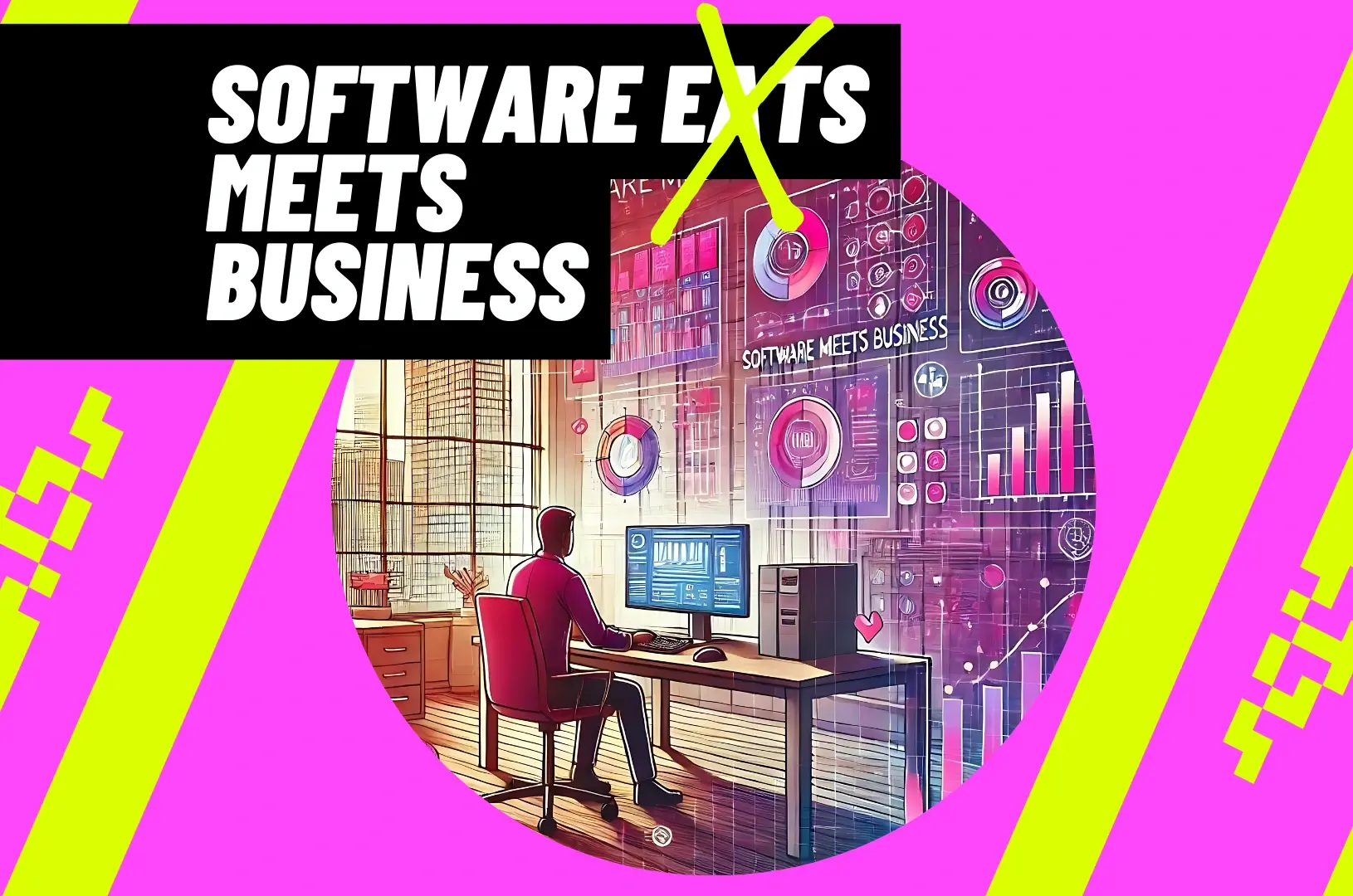
Building Through Challenges: Matt Grennan’s Sharpish Journey - E11
In this episode of Software Meets Business, we sit down with Matt Grennan, the founder of Sharpish, to hear his journey from construction business owner to tech entrepreneur.
In this exciting episode of Software Meets Business, host Richard Bundock sits down with Matt Grennan, , the founder of Sharpish, to hear his journey from construction business owner to tech entrepreneur. Frustrated by the challenges of staffing and recruitment in the construction industry, Matt set out to create a platform that would revolutionise how companies find and manage tradespeople—bringing Uber-like efficiency to hiring skilled labour.
[00:00:00] Rich: Welcome to another episode of Software Meets Business. Today, I am incredibly excited to have Matt Grennan, the founder of Sharpish, on our little podcast.
Hi Matt.
Matt: Hello, how you doing?
Rich: Good, good. I suppose the thing to get started with is just tell us a little bit about your background and how you came to come up with the idea for Sharpish.
[00:00:26] Matt: Yeah, of course. So before we started to develop Sharpish, I was a construction company owner. I had between 20 to 25 guys working for me, and I faced a lot of problems when it came to staffing jobs, especially finding the right type of staff.
People would call in sick on a Sunday at 8 PM, and I wouldn’t be able to find replacements for the next day. That was a nightmare.
The main problems I faced were: • Punctuality – People arriving late or not showing up at all. • Underqualified workers – People sounding great on the phone but turning up without the right certifications to operate machinery like diggers. • Last-minute sick days – If someone called in sick at the last minute, we had no system to find a replacement quickly.
So I decided to develop something that would solve these problems. • We added geofencing location data so companies could see where staff clock in and clock out. • We implemented preloaded qualifications so you could check if someone had the correct certifications before they arrived on-site. • We built a database of tradespeople ready to work, so if you were short-staffed, you could send out a job alert and fill positions quickly.
It’s basically an Uber or Deliveroo-style platform for recruitment, but specifically for the construction sector.
[00:02:11] Rich: Great. So you had the idea. How did you get started with actually building the app?
Matt: I’ll tell you how the idea really came about.
One morning, I had a £27,000 concrete pour scheduled, and five guys didn’t turn up. Now, the problem is if you’ve ordered the concrete, you’re getting charged for it no matter what. Either you pour it, or it gets dumped somewhere, but you’re still paying.
I had to scramble to find five workers at the last minute, and that’s when it hit me:
“Most companies wouldn’t be able to do this. They’d just take the financial hit.”
That’s when I thought: “We need a platform for this.”
At first, the idea was just for sick days—so if someone called in sick, you could find a replacement quickly. But then I realised, why not turn it into a full recruitment platform?
[00:03:27] Rich: Yeah, I get that. So, once you had the idea, what did you do next?
Matt: I had zero technical background—I can barely use a calculator! So I just searched online for companies that build apps.
I reached out to two or three companies and ended up going with a company I’d actually spoken to three years earlier about a different project.
They put together a package for £8,000, which they said would: • Give me a pitch deck • Provide UX/UI designs for the app • Help me get to the point where I could raise investment
I thought, “Alright, let’s go for it.” It took them about three months to get the materials together.
Luckily, my best friend works in media marketing, so he helped create an animated explainer video that we used to pitch to investors.
[00:05:55] Rich: So you spent the £8,000. How long did it take to get investment?
Matt: It wasn’t super quick. • It took three months to get the pitch materials ready. • Another month after that, I raised my first £200,000 from my main investor, Matt Paul. • He introduced me to two more investors, who put in another £150,000. • Matt later loaned the company £120,000, bringing our total investment to about £470,000.
The first investor was amazing—the day after my pitch, he transferred £40,000 into my account and said, “Crack on with it.”
[00:07:00] Rich: So now you had the money—what happened next?
Matt: We went to London and had meetings with the development company.
Now, this is where I made a big mistake. • I assumed I’d just give them the idea, and six months later, they’d hand me a finished app. • Instead, they sent me a 20-page document that I had to fill out detailing every single feature. • Even when I wrote everything down, they still missed things or claimed features weren’t included.
For nine months, I was waking up at 2 AM to answer messages from their developers in China.
I actually moved into my office in Brighton, sleeping there and showering at the gym, because my schedule was: • 2 AM - 6 AM: Calls with Chinese developers • 8 AM - 9:30 AM: Calls with marketing team in Bali • UK daytime: Handling business operations • Evenings: Calls with investors in the U.S.
I was getting four hours of sleep per night for almost a year.
Then we finally get an email: “Your app is ready.”
But when we tested it… • No tracking system • No clock-in/clock-out • No job notifications
The four key features we needed—missing.
[00:12:00] Matt: We confronted them, and they basically said:
“Oh, you signed a contract approving this version.” We hadn’t. So I asked them to send me a copy of this so-called contract—and they couldn’t. Then they said, “If you want the missing features, that’ll be £40,000 more.” We were stuck. We’d already spent £200,000–£300,000, so Matt Paul loaned another £40,000 to get it finished. Then they came back again: “The tracking system? That’ll be another £36,000.” At this point, we realised they were scamming us. We found a new development team—who built the tracking system for £4,000, instead of £36,000. Where Sharpish is Now.
[00:26:24] Matt: We’ve now got 1,000 tradespeople on the app and some big clients like Co-op Live Arena in Manchester.
We had a three-month delay after Google Play removed our app for no reason, but we’re back online now.
We’re now looking to raise another £500,000 and expand our features.
[00:28:00] Rich: Matt, thank you so much for sharing your story. This has been one of the most honest discussions about the pain of getting software built.
Matt: Yeah, persistence beats resistance!
Rich: Absolutely. Wishing you and Sharpish all the best.
Matt: Spot on. Thank you very much.

Contact us.
If you need a partner in software development, we're here to help you.
We will respond to your enquiry immediately.